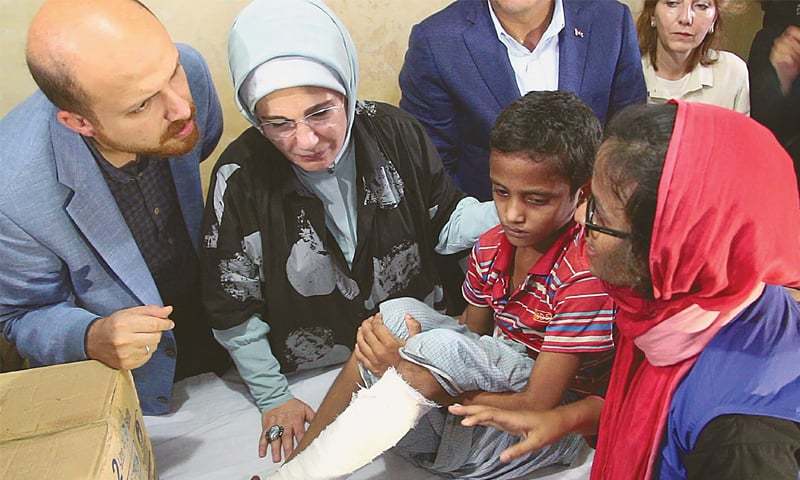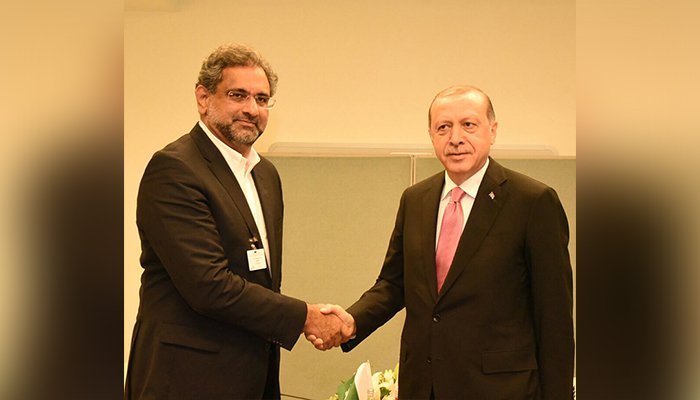The “Pakistan-Turkey relationship has transformed into a strategic partnership” the Pakistani Prime Minister Shahid Khaqan Abbasi said in New York last week according to national broadcaster Radio Pakistan.
The comments came amid side-line talks with Turkish President Recep Tayyip Erdoğan, who also reaffirmed Ankara’s commitment to a continued mutually beneficial partnership at the United Nations General Assembly (UNGA) Session last Tuesday.
Among the key matters discussed were the enhancement of trading ties, a solution to the continuing conflict in Afghanistan, disputed territories and the suffering of Rohingya Muslims in Buddhist-majority Burma, which has been denounced by the UN as “a text-book example of ethnic cleansing”.
Both Abbasi and Erdoğan placed emphasis on expanding their countries’ economic relationship by strengthening collaboration towards the early conclusion of a Free Trade Agreement.
The two leaders also agreed that the Afghan crisis did not have a military solution and advocated a regional approach for political and peace settlements that were both owned and led by Afghans. In order to promote this initiative, both sides came together in calling for the revival of the Pakistan-Afghanistan-Turkey Trilateral process which, according to the Turkish Foreign Ministry, first began in 2007 with the aim of “promoting security, stability, peace, and economic development in the region”.
Mr Abbasi later re-iterated Turkey’s support for the Pakistani stance on Afghanistan to the press after addressing the UNGA last Friday, commenting that Russia and China also favoured Islamabad’s position.

Speaking on other South Asian regional affairs according to The News International, an English-language Pakistani Newspaper, Prime Minister Khaqan also expressed thanks to Turkey for backing Pakistan on issues relating to border disputes with India, lauding the country’s “unflinching support to the struggle of the people of Indian occupied Jammu and Kashmir.”
On the plight of the Rohingya Muslims, over 400,000 of whom have fled Burma’s Rakhine State to neighbouring Bangladesh after violence and persecution at the hands of the Burmese security forces and Buddhist extremist mobs, both leaders called upon the international community and the Organisation of Islamic Cooperation (OIC) to take action urgently to address the humanitarian crisis. These comments come after Turkish officials announced in early September that Turkey would send aid to the Rohingya in Rakhine and to those seeking refuge in Bangladesh.





